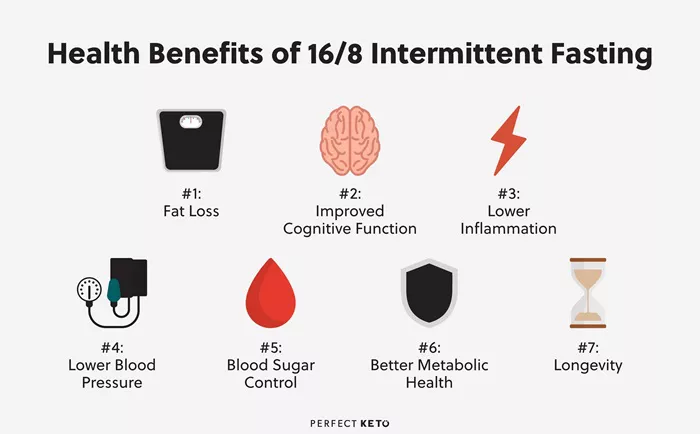Retinol is a powerful skincare ingredient that has gained significant popularity in recent years. It is a form of vitamin A that offers numerous benefits for the skin, including reducing the appearance of fine lines and wrinkles, improving skin texture, and promoting cell turnover. However, retinol can also be quite drying and irritating to the skin, especially when used in high concentrations or for extended periods. This is where moisturizers come in. Choosing the right moisturizer to use over retinol is crucial to minimize potential side effects and maximize the benefits of both ingredients. In this article, we will explore the different types of moisturizers suitable for use with retinol, factors to consider when making a choice, and some recommended products.
Understanding Retinol and Its Effects on the Skin
Retinol works by stimulating the production of collagen, a protein that gives the skin its structure and elasticity. As we age, collagen production naturally decreases, leading to the formation of fine lines and wrinkles. By increasing collagen production, retinol can help to smooth out the skin’s surface and reduce the appearance of these signs of aging. Additionally, retinol promotes cell turnover, which means that old, dead skin cells are shed more quickly, revealing fresher, younger-looking skin underneath.
However, retinol can also disrupt the skin’s natural barrier function. The skin’s barrier is a protective layer that helps to prevent moisture loss and keep out harmful substances. When this barrier is compromised, the skin can become dry, itchy, and more prone to irritation. This is why it’s essential to use a moisturizer to help replenish and maintain the skin’s moisture levels when using retinol.
Types of Moisturizers Suitable for Use with Retinol
Hydrating Moisturizers
Hydrating moisturizers are designed to add water to the skin. They typically contain ingredients such as hyaluronic acid, glycerin, and aloe vera. Hyaluronic acid is a powerful humectant that can hold up to 1000 times its weight in water. It attracts moisture from the environment and binds it to the skin, keeping it hydrated. Glycerin is another common humectant that works in a similar way. Aloe vera has soothing and hydrating properties, making it a great ingredient for calming irritated skin.
Hydrating moisturizers are a good choice for those with normal to combination skin. They can help to counteract the dryness caused by retinol without adding too much oil to the skin. These moisturizers are usually lightweight and absorb quickly, making them suitable for use during the day or at night.
Emollient Moisturizers
Emollient moisturizers are formulated to smooth and soften the skin. They contain ingredients like shea butter, cocoa butter, and jojoba oil. These natural oils and butters help to fill in the gaps between skin cells, creating a smoother surface. They also help to lock in moisture, preventing it from evaporating from the skin.
Emollient moisturizers are ideal for those with dry or sensitive skin. The rich, creamy texture of these moisturizers provides intense hydration and can help to soothe irritated skin. However, they may be too heavy for those with oily skin, as they can leave a greasy residue.
Occlusive Moisturizers
Occlusive moisturizers form a physical barrier on the skin’s surface to prevent moisture loss. Ingredients such as petrolatum (vaseline), mineral oil, and beeswax are commonly used in occlusive moisturizers. These substances create a waterproof layer that seals in moisture, keeping the skin hydrated for longer periods.
Occlusive moisturizers are best for those with very dry or severely damaged skin. They are particularly useful at night, as they can provide long-lasting hydration while you sleep. However, they can be quite thick and greasy, so they may not be suitable for daytime use, especially if you have oily skin or prefer a more lightweight feel.
Factors to Consider When Choosing a Moisturizer for Retinol
Skin Type
As mentioned earlier, different skin types have different moisturizing needs. If you have oily skin, you’ll want to choose a lightweight, hydrating moisturizer that won’t add extra oil to your skin. Look for products labeled as “oil-free” or “non-comedogenic,” which means they won’t clog pores.
For dry skin, an emollient or occlusive moisturizer is a better choice. These moisturizers will provide the intense hydration your skin needs to combat the dryness caused by retinol.
If you have sensitive skin, you need to be extra careful when choosing a moisturizer. Look for products that are fragrance-free, hypoallergenic, and contain soothing ingredients like aloe vera or chamomile.
Ingredients
In addition to considering your skin type, it’s also important to pay attention to the ingredients in the moisturizer. Avoid products that contain harsh chemicals, fragrances, and alcohol, as these can further irritate the skin, especially when used in combination with retinol.
Look for moisturizers that contain beneficial ingredients such as antioxidants. Antioxidants like vitamin C, vitamin E, and green tea extract can help to protect the skin from damage caused by free radicals. Free radicals are unstable molecules that can contribute to the aging process and damage the skin’s cells. By using a moisturizer with antioxidants, you can enhance the overall benefits of your retinol treatment.
Another important ingredient to look for is ceramides. Ceramides are natural lipids that make up a significant portion of the skin’s barrier. Using a moisturizer with ceramides can help to repair and strengthen the skin’s barrier function, which is especially important when using retinol.
Texture and Formulation
The texture and formulation of the moisturizer can also affect how well it works with retinol. If you prefer a lightweight, fast-absorbing moisturizer, a gel or lotion formulation may be a good choice. These types of moisturizers are typically easier to apply and won’t leave a heavy residue on the skin.
On the other hand, if you have very dry skin and need more intense hydration, a cream or ointment may be more suitable. These thicker formulations can provide longer-lasting moisture, but they may take a bit longer to absorb.
Compatibility with Retinol
Not all moisturizers are compatible with retinol. Some ingredients in moisturizers can interact with retinol and reduce its effectiveness or increase the risk of irritation. For example, products that contain alpha-hydroxy acids (AHAs) or beta-hydroxy acids (BHAs) should be used with caution when using retinol. These acids can exfoliate the skin, and when combined with retinol, which also promotes cell turnover, it can lead to excessive dryness and irritation.
It’s best to choose a moisturizer that is specifically formulated to be used with retinol or one that is gentle and free of potentially irritating ingredients.
Recommended Moisturizers for Use with Retinol
Cetaphil Daily Facial Moisturizer
This lightweight, non-greasy moisturizer is suitable for all skin types, including sensitive skin. It contains a blend of humectants and emollients to hydrate and soothe the skin. It’s fragrance-free and hypoallergenic, making it a great choice for those with sensitive skin who are using retinol.
La Roche-Posay Toleriane Double Repair Face Moisturizer
This moisturizer is formulated with ceramides and niacinamide to repair and strengthen the skin’s barrier function. It also contains glycerin to hydrate the skin. It’s suitable for dry, sensitive skin and can help to reduce the redness and irritation that may occur when using retinol.
Kiehl’s Ultra Facial Cream
This classic moisturizer is known for its hydrating properties. It contains squalane, a natural emollient that helps to lock in moisture. It’s suitable for normal to dry skin and provides long-lasting hydration, making it a good option for those using retinol.
Neutrogena Hydro Boost Gel-Cream
This gel-cream moisturizer is formulated with hyaluronic acid to provide intense hydration. It has a lightweight, non-greasy texture that absorbs quickly into the skin. It’s suitable for all skin types, including oily skin, and can help to keep the skin hydrated when using retinol.
First Aid Beauty Ultra Repair Cream
This rich, creamy moisturizer is formulated with colloidal oatmeal, shea butter, and ceramides to soothe and hydrate dry, irritated skin. It’s suitable for very dry, sensitive skin and can be used to combat the dryness and irritation caused by retinol.
How to Use Moisturizer with Retinol
When using retinol and moisturizer together, it’s important to follow the correct application order. First, clean your face thoroughly and pat it dry. Then, apply a thin layer of retinol to your face, avoiding the eye area. Let the retinol absorb into the skin for a few minutes.
Next, apply your moisturizer. Start with a small amount and spread it evenly over your face and neck. Gently massage the moisturizer into the skin until it is fully absorbed.
It’s also important to start slowly when using retinol. Begin by using it once or twice a week and gradually increase the frequency as your skin adjusts. This will help to minimize the risk of irritation.
Conclusion
Choosing the right moisturizer to use over retinol is essential for maintaining healthy, hydrated skin while enjoying the benefits of this powerful ingredient. By considering your skin type, the ingredients in the moisturizer, the texture and formulation, and the compatibility with retinol, you can find the perfect moisturizer for your needs. Remember to start slowly with retinol and follow the correct application order to minimize the risk of irritation. With the right combination of retinol and moisturizer, you can achieve smoother, more youthful-looking skin. So, take the time to choose the right products and incorporate them into your skincare routine for optimal results.
Related topics:
How to Choose Good Skin Care Moisturizers?



































